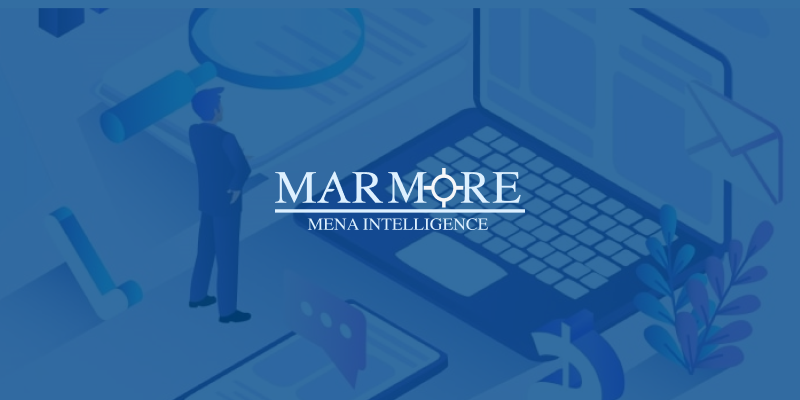Introduction
It’s time for GCC economies to embrace equity research. We will tell you why. Let’s begin by looking at how these markets have performed in 2014.br/>
| Country | Index | Performance 2014 |
| UAE | Dubai’s DFM Index | + 11.99% |
| UAE | Abu Dhabi Stock Market Index | + 5.56% |
| Saudi Arabia | TADAWUL All Share Index | – 3.16% |
| Qatar | QE All Share Index | + 18.36% |
| Kuwait | KWSE Weighted Index | – 3.09% |
| Oman | MSM Index | – 7.70% |
| Bahrain | BSE Index | + 14.23% |
Source: Reuters, Markaz Research
Among GCC countries, Saudi Arabia has the best reporting regulations. Its Code of Corporate Governance is a case in point. A Standard & Poor report suggests that of all the GCC firms covered by it only 6.3 per cent have strong scores for management and governance. Yes, companies are rather secretive about their financials.
They also do not share forward guidance with analysts. Little wonder, stock prices do not reflect corporate fundamentals. This information irregularity accentuates the risk for investors. Add to this the absence of a derivatives market, as also the absence of a market for short selling, and the result is scatter pricing.
The Morgan Stanley Capital international (MSCI) classified the GCC markets as frontier markets because of these institutional issues as also the restrictions on foreign investors. UAE and Qatar that recently got upgraded to the Emerging market status, effective May 2014 are the exceptions. This change can attract more institutional investors. In their bid to be classified as “Emerging” market, Saudi Capital Markets Authority are trying make markets more efficient, and to allow foreign investment. From June 2015, in a move that will help to boost inflows, improve corporate governance and reduce volatility, Qualified Foreign Investors (QFIs) will be able to buy and sell blue-chip stocks.
What is the current status of equity research in the region?
The GCC fund managers have an advantage over their global peers in generating alpha returns. The inefficiencies of the markets make this possible. This is in sharp contrast to developed markets like the US where active strategies stopped producing higher returns, It’s no surprise that Exchange Traded Funds (ETFs), which are popular among the mutual funds in developed markets, haven’t made a mark in the GCC.
A few large cap stocks, mostly in Oil & Gas and Financial services sector, dominate the GCC Equity market. They have high liquidity and investors prefer them to small and mid-cap companies.
The trend of analyst recommendations on GCC stocks observed over the last 12 months show that over 90% were either ‘Buy’ or ‘Hold'. As most of the research coverage was on large caps, the recommendations were favorable to them, a trend that continued even though the markets were not in line with these recommendations!
The reason can be due to the larger target audience for the Buy reports (new investors) compared to the Sell reports (existing investors). It can also be due to the reluctance of the analysts to issue a ‘Sell’ recommendation in order to get favorable deals for Investment Banking activities. The analysts might want to be in the good books of the company for extracting information from them in the future.
Equity analysts generally ignore small and mid-cap companies. The high illiquidity in these stocks discourages investors from choosing these securities. Investors might not realize capital gains by investing in them in spite of the fact that some of the SMEs have the potential to scale up and produce high earnings growth.
If the market never adjusts to the intrinsic value, will these stocks gain momentum?
Why is there a need for wider equity research?
The lack of wider research activity in the region is responsible for the information-inefficiency of the markets. The investors are happy with their large cap portfolio and the funds are happy outperforming the benchmark indices. If markets become more efficient and stock prices start to reflect the fundamental these funds will stop making money. There is clearly a case for more Equity research.
Due to the absence of active equity market, the small and mid-cap companies rely on bank loans to raise capital for their expansion plans. They are not able to take advantage of the enormous funds available in the region by issuing new equity.
Reforms in the capital markets can break this endless loop of illiquidity and lack of coverage. The Capital Market Authority (CMA) of Kuwait has issued new regulations and amendments since 2013 to improve investor confidence.
The CMA is now empowered with greater independence to stop market irregularities, and boost transparency in bourse dealings. The financial system in the GCC is regulated and supervised by several regulators. A formal framework for coordination and information sharing across the regulatory agencies can help. Transparent disclosures and fair pricing of securities is possible by fixing the regulatory loopholes. The efficiency of capital markets will lead to optimal allocation of funds among various securities.
What is the way forward?
The GCC countries need to work towards increasing market efficiency that would attract foreign capital. In recent times with the fall in oil price, the GCC states have diversified into non-oil sectors. Growth in these sectors will occur via IPO investments from the public sector, which would lead to demand for research. To attain emerging market status GCC states are enacting structural reforms. More exchanges are opening up their markets for foreign institutional investors. Industry and Economic reports are needed to help investors tap into the booming equity market.
Growth of equity research is an expected necessity as the markets become more transparent and efficient.
Stay Tuned To Marmore MENA Insights!
Never miss a patch or an update with Marmore's Newsletter. Subscribe now!
Related Article
2024 Kuwait Banking: Interest Rates and NIM Trend Analysis
The blog discusses how net interest margin of Kuwaits banks has moved across interest rate cycles, in light of awaited policy rate cuts.
Read MoreAre ESG and Sustainable investing the same?
ESG and Sustainable Investing might seem to be related but both are distinct concepts. The GCC nations transition towards cleaner energy portrays a buoyant outlook for ESG and sustainable investing.
Read MoreBusiness Impact of IFRS Sustainability Standards for GCC
The impact of the recently issued IFRS sustainability standards, once adopted, is likely to be high, as GCC companies scramble to allocate adequate resources for the adoption.
Read More




